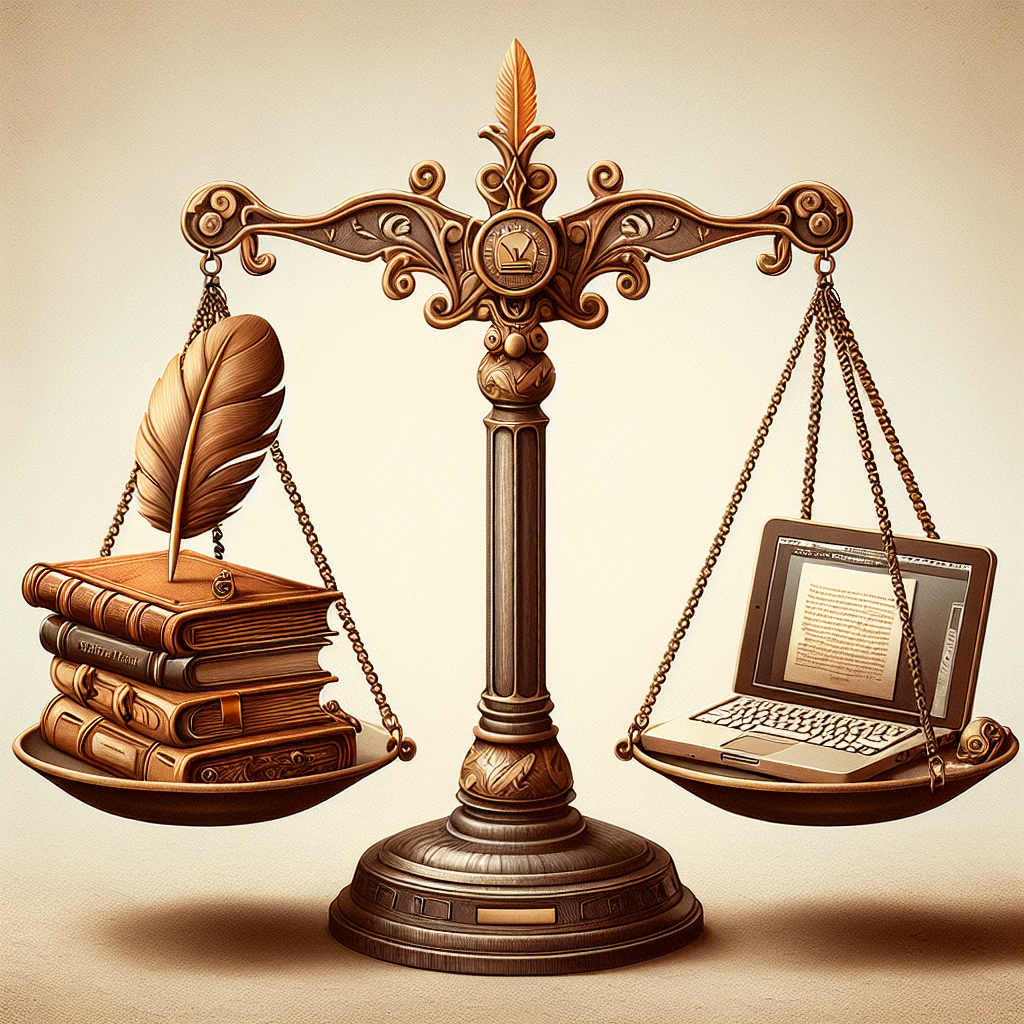Deciding on Traditional Publishing or Self-Publishing
Introduction
When it comes to publishing your work, the decision between traditional publishing and self-publishing can be a daunting task. Transitioning from a writer to a published author can be full of uncertainty and complexity. Bursting with questions and uncertainty, many authors struggle to determine the best route for their work.
Traditional Publishing
Traditional publishing involves submitting your work to literary agents and publishers in hopes of securing a book deal. It can be a competitive and time-consuming process. On the other hand, self-publishing allows authors to take control of the entire publishing process, from editing to distribution. Bursting with opportunities, traditional publishing offers the possibility of wider exposure and professional support. However, it can also come with challenges such as long waiting times and potential rejection.
Benefits of Traditional Publishing
One benefit of traditional publishing is the validation and prestige that comes with being published by a recognized publishing house. The burst of excitement that comes with seeing your work on bookstore shelves can be a great feeling. Additionally, traditional publishers often provide marketing and publicity support for their authors. This can help increase the visibility and reach of your book.
Challenges of Traditional Publishing
Despite the benefits, traditional publishing can be a challenging path to navigate. The process of finding a literary agent or publisher can be overwhelming and time-consuming. Additionally, many authors face rejection before finding the right fit for their work. The burst of disappointment that comes with rejection letters can be disheartening.
Self-Publishing
Self-publishing has gained popularity in recent years due to the ease of access to online publishing platforms. Authors have the ability to publish their work quickly and efficiently. Bursting with freedom and control, self-publishing allows authors to make their own creative decisions and retain all rights to their work. However, self-publishing requires authors to take on all aspects of the publishing process, from editing to marketing.
Benefits of Self-Publishing
One of the main benefits of self-publishing is the burst of creative control and freedom it offers. Authors have the ability to make all decisions regarding their work, from cover design to pricing. Additionally, self-publishing allows authors to publish their work quickly and reach a global audience through online platforms.
Challenges of Self-Publishing
While self-publishing offers many benefits, it also comes with its own set of challenges. Authors must take on all aspects of the publishing process, including editing, formatting, and marketing. This can be a time-consuming and overwhelming task for many authors. Additionally, self-published books may face challenges in gaining recognition and reaching a wider audience without the support of a traditional publisher.
Conclusion
In conclusion, the decision between traditional publishing and self-publishing is a complex and personal one. Bursting with uncertainty and questions, authors must weigh the benefits and challenges of each option before making a decision. Whether you choose traditional publishing or self-publishing, the most important thing is to believe in your work and stay committed to your writing journey.
For more tips and guidance on publishing, visit EditMojo.
Remember, regardless of the path you choose, the burst of becoming a published author is a rewarding and fulfilling experience.
